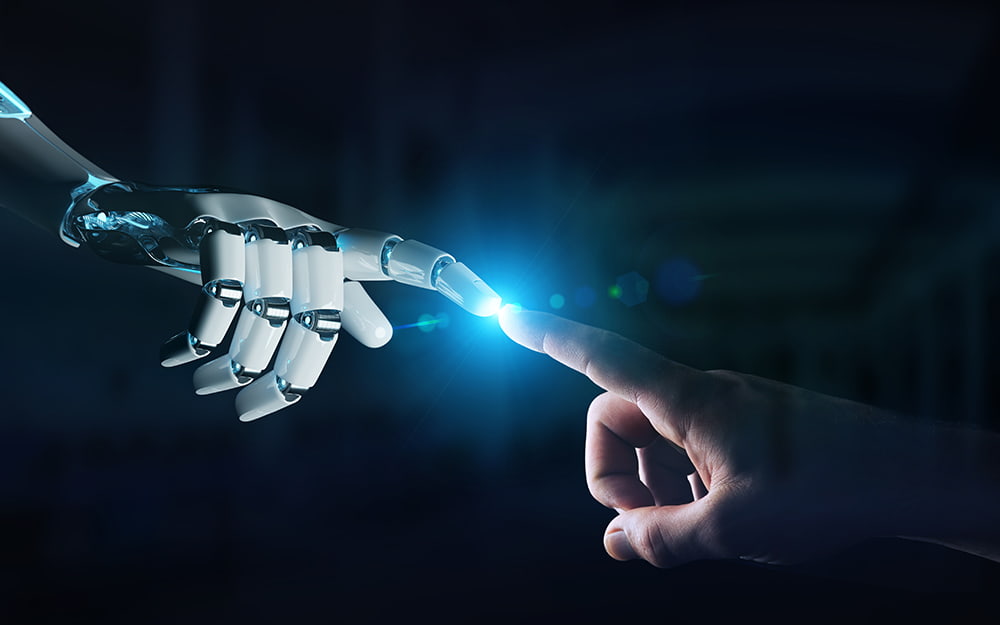6 Ways Artificial Intelligence is Redefining Human Resources
Technological developments have revolutionized the way organizations and businesses operate in multiple verticals, including the Human Resource (HR) department. Artificial Intelligence or AI in HR has made organizations function much better because AI helps HR analyze, predict, and diagnose HR to make better judgments and decisions.
Machine learning, AI, and automation in HR impact the HR department and how they hire, manage, and train individuals within the organization. Several HR functions, such as employee onboarding, recruiting, learning and development, and more, are upgraded by AI to fascinate their process.
The best part is over the past two years; HR employees have been welcoming AI integration openly. According to an Oracle and Future Workplace study report, around 64% of employees voted to trust and seek advice from AI rather than their manager. Such a favorable response to integrating AI trends in HR shows that AI is indeed redefining and transforming the HR industry.
Let us see in-depth how AI is helping HR departments in their several functionalities in six different ways.
1. Smart digital forms to ease the process
Organizations generally require prospective employees or candidates to reenter the same data and information over several steps during the new candidate’s onboarding process and new-hire journeys. Repeating and entering the same information over and over again can get monotonous and annoying, creating a bad impression.
To replace this monotonous process, companies leverage AI so that the candidates can transfer data and information into a digital form from their resumes more quickly and efficiently. AI also stores this relevant information and automatically suggests or inputs data when the candidate is filling out a future form or application, which increases the efficiency and saves time for the candidates.
Thus, AI in HR recruitment makes complete sense and enhances an organization’s productivity by recruiting the right and suitable candidates.
2. Enables intelligent decision making
HR takes benefits of human-AI collaboration by analyzing and recording employee’s skill sets, queries, requirements, feedback, and thoughts, and sentiments towards the company, which helps in the better, meaningful, and intelligent decision-making procedure.
AI-driven tools and technologies also eliminate human-biased decisions during the appraisal and recruitment process. AI analyzes and recognizes high-performing employees, leading to an intelligent hiring process and decision-making.
3. Enhances personalized employee engagement
Artificial intelligence collects and gathers data and insights in real-time and shares it with HR to communicate and interact with employees in a much personalized and effective way. In addition, AI also maps competency, projecting employee’s career progression.
This helps boosts employee engagement, productivity, and overall workforce experience.
4. Improves communication and conversation engagement with AI-backed chatbots
AI-based chatbots provide a human-like and natural conversational experience by analyzing human’s or candidate’s tone and sentiments and responding accordingly. These chatbots efficiently answer common FAQs and other queries, saving HR’s time and effort so they can focus on complex tasks.
Through these conversations, AI also analyzes information and shares it with HR to make informed and correct decisions. Especially during these remote and work-from-home situations, AI helps and enables smoother conversations between the management, employee, and HR. Thus, such HR automation, where AI acts as an HR assistant, provides a one-stop solution to candidates regarding common queries, payroll questions, organizational policies, and more.
5. Modernize learning and development processes
AI facilitates adaptable and agile learning and development programs based on the employee’s requirements, skills, and future aspirations. Thus chatbots and AI together enable a faster, efficient, and more collaborative learning experience.
AI also helps personalize the learning journey of a particular candidate based on their job role, interests, and other factors.
6. Leverage transactional workforce data
HR professionals use AI to leverage transnational workforce data to help them predict employee performance, potential, flight risk, fatigue, and overall engagement, enabling productive conversations and improving employee retention, performance, and experience.
AI helps employees create personalized and smarter work schedules and review shift-swap requests and time-off, which enhances employees’ experiences at the workplace and lets them have control over their work-life balance.
Thus, AI manages such repetitive tasks and administrative requests, allowing managers and HR employees to invest more of their time to train employees and communicate and work with customers.
Summing Up
Artificial intelligence and machine learning advancements have massively shifted the way the world communicates with technology and organizations. This change and advancement have enhanced and redefined human and machine interaction. The future of AI in HR is promising, as it helps HR professionals make better informed and accurate decisions. This integration also helps them manage and save their valuable time, increasing employee productivity within the organization.
interface.ai provides improved and intelligent AI automation solutions, such as HR assistant and HR automation, to enhance staff and employee productivity and help serve customers better. Our HR assistant enables an employee to effectively utilize employee assistance programs, health benefits, and other solutions with ease. Visit our official website interface.ai to check out and leverage our solutions for your organization.
Discover the Latest Insights on Interactive Intelligence for Banking Newsletter
Join the newsletter to receive the latest updates in your inbox.


